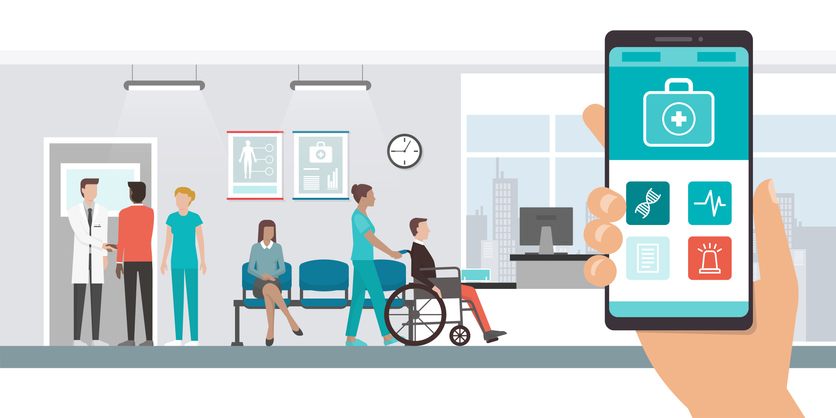
Roche is adding to its diagnostic capabilities through a deal to acquire GenMark Diagnostics, a molecular diagnostics company whose technology tests for multiple pathogens—including the novel coronavirus—from a single patient sample.

With the Rise of AI, What IP Disputes in Healthcare Are Likely to Emerge?
Munck Wilson Mandala Partner Greg Howison shared his perspective on some of the legal ramifications around AI, IP, connected devices and the data they generate, in response to emailed questions.
According to financial terms announced Monday, Switzerland-based Roche will pay $24.05 cash for each GenMark share. That price represents a more than 30% premium to the company’s closing stock price on Friday. It’s a 43% premium to the stock’s price on Feb. 10, which was the last day before news surfaced about a potential deal for the Carlsbad, California-based company.
GenMark markets a diagnostic platform called ePlex. The technology provides syndromic panel testing, which means it can detect multiple pathogens in a single test of one patient sample. A patient sample is added to an ePlex cartridge, which is inserted into the ePlex instrument. All of the testing is done within that cartridge, and GenMark says the analysis yields an electrochemical signal that its instrument reads as a sign of target pathogens.
The company adds that its sensor technology is highly specific for the target biological indicator of a pathogen and is not based on optical or fluorescent detection, which is the way current molecular diagnostics work. Consequently, GenMark contends that its tests are less prone to contamination risks that come with the multiple steps required in handling and testing of samples with other technologies.
The FDA granted regulatory clearance in 2017 for the ePlex system itself and for a panel of respiratory tests. Last year, the agency granted emergency authorization for an ePlex test specifically for the novel coronavirus. After authorities in Europe and the U.S. later granted the regulatory go-ahead to market a respiratory panel that includes SARS-CoV-2, GenMark stopped selling the SARS-CoV-2 test by itself.
In its announcement of fourth quarter and full year 2020 financial results late last month, GenMark reported $171.5 million in revenue last year, a 95% increase over the prior year. The company attributed the increase to ePlex sales growth, which alone accounted for $92.8 million in sales. The company said ePlex revenue was driven in part by sales of its Respiratory Pathogen Panel 2 product, the test panel for multiple respiratory viruses including SARS-CoV-2.
Roche sells a molecular diagnostic system called cobas. That product is based on a decades-old diagnostics technology called polymerase chain reaction, which is the basis for systems offered by other diagnostics companies. The FDA first approved cobas in 2011 for detecting human papillomavirus and the product has since received FDA clearances for other pathogens.
A year ago, the FDA granted emergency authorization for cobas in testing for SARS-CoV-2. Last September, the agency granted an additional authorization for the cobas in testing for the novel coronavirus along with influenza A and B. Beyond that, Roche said it does not currently offer syndromic testing. The GenMark respiratory test panel is FDA cleared for more than a dozen pathogens. In securities filings, Roche said syndromic testing is important because different pathogens can cause many of the same symptoms, making a particular disease difficult to diagnose using current testing methods.
“By detecting the most common pathogens that cause disease together on a single rapid test, clinicians can prescribe the right therapeutic within hours—rather than days—when compared to conventional testing algorithms,” Roche said. “Not using a syndromic approach may result in a patient being treated with an antimicrobial agent unnecessarily that may subject the patient to potential adverse effects.”
In its announcement of the GenMark acquisition, Roche said the California company’s testing technology will complement its own molecular diagnostics portfolio. For GenMark, the deal gives it the opportunity to place its diagnostic technology in the hands of a multinational company better positioned to market the product globally.
GenMark is not the only company offering a system that tests for the novel coronavirus along with other respiratory pathogens. Last September, the FDA granted Sunnyvale, California-based Cepheid emergency authorization for use of its molecular diagnostic to detect, from a single test, four respiratory viruses: SARS-CoV-2, influenza A and B, and respiratory syncytial virus.
GenMark went public in a 2010 IPO priced at $6 per share. That price represented a nearly 28% cut from its initial per share price target. After the Roche acquisition was announced Monday, shares of GenMark, which trade on the Nasdaq under the stock symbol “GNMK,” opened at $23.87 apiece.
The boards of both Roche and GenMark have unanimously approved the transaction, which is expected to close in the second quarter of this year. Roche said it will keep GenMark at its current site.
Photo: Giuseppe Aresu/Bloomberg, via Getty Images














